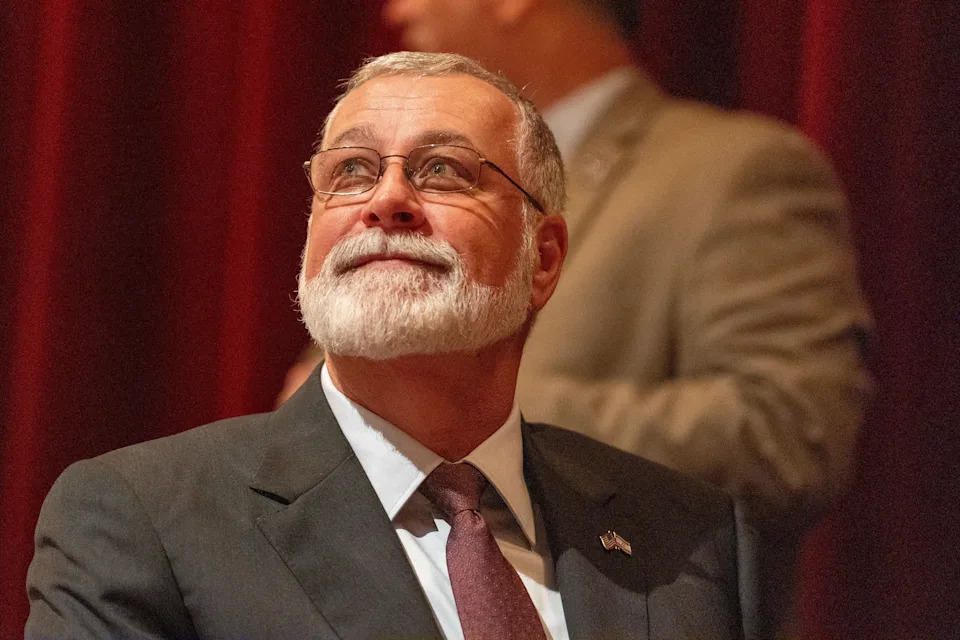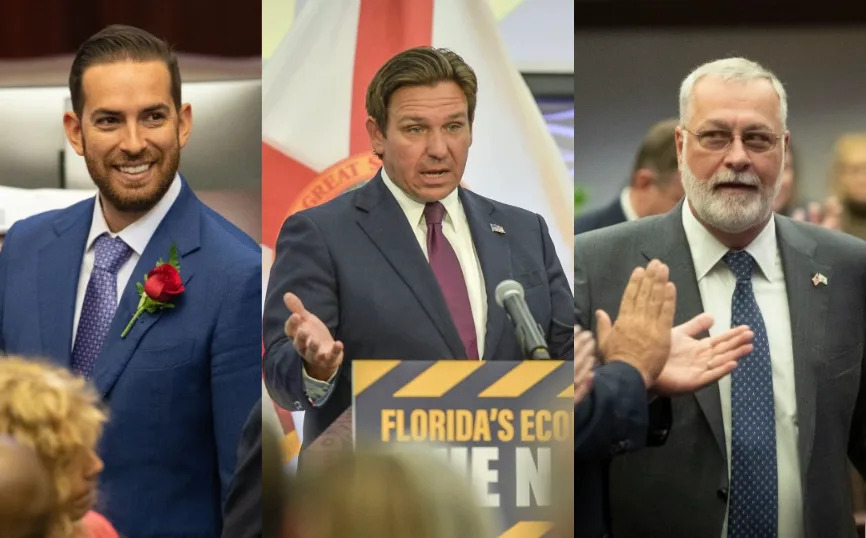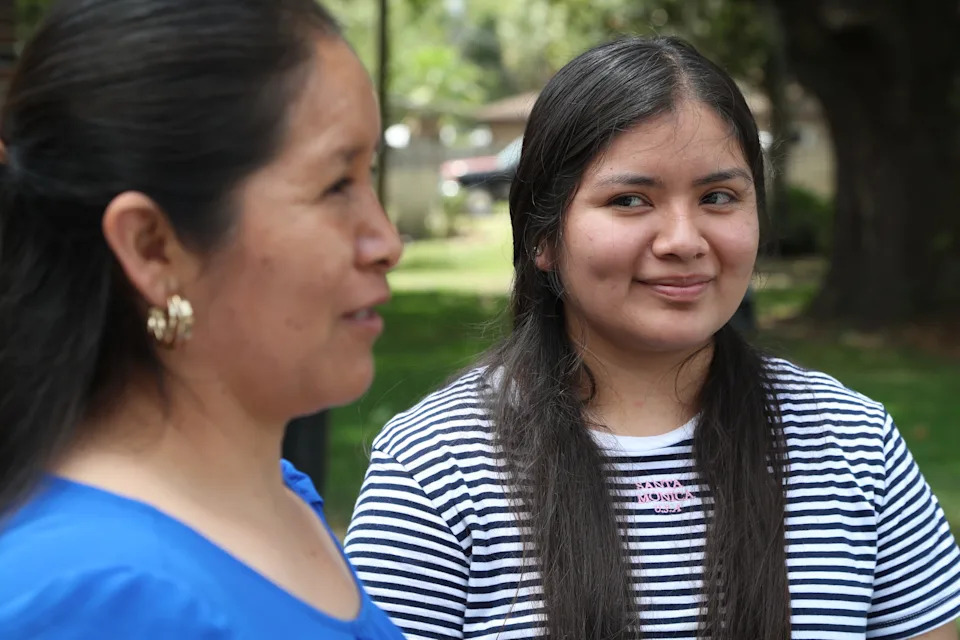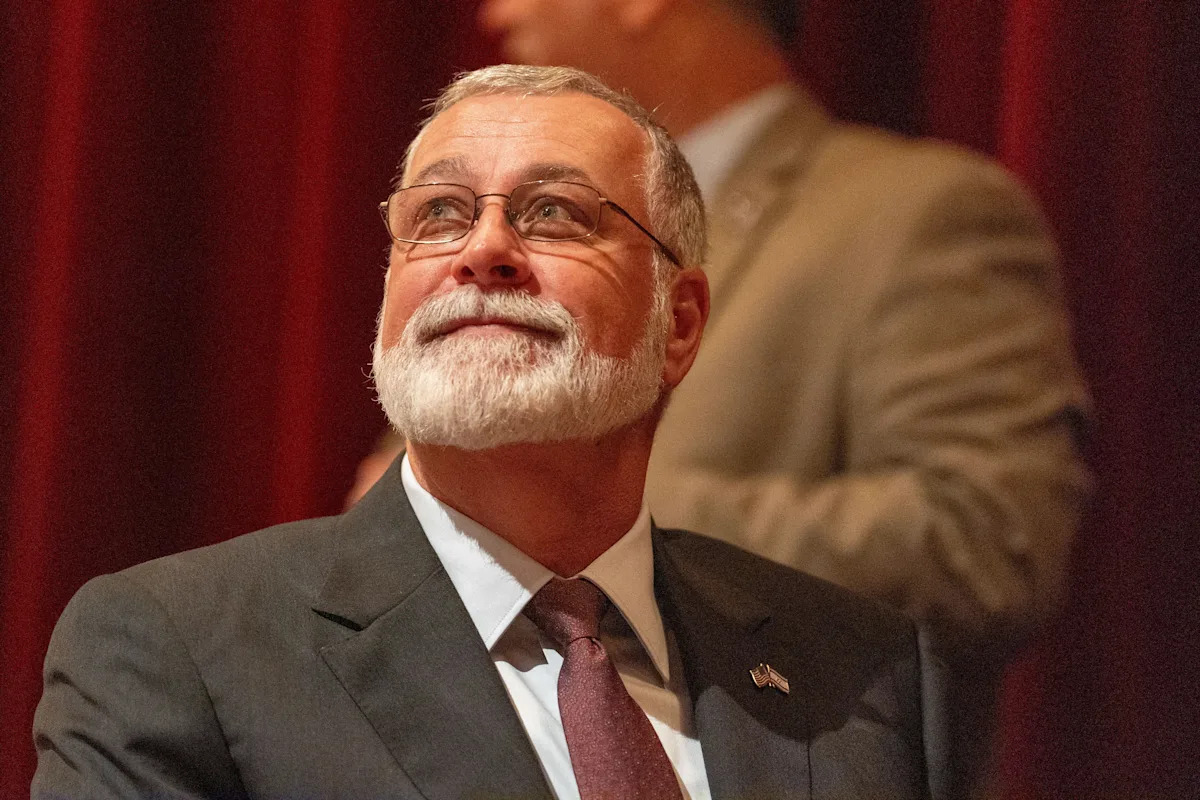Michelangelo took four years to paint the Sistine Chapel. Senate President Ben Albritton is going to need at least two years to finish his own masterpiece – a set of policies known as the Rural Renaissance.
Albritton, a Wauchula Republican, took the helm of the Senate after the 2024 elections, but his plan to infuse rural areas with more funding while expanding options for education, health care, improving transportation infrastructure and adding housing was a casualty of the fight between Gov. Ron DeSantis and House Speaker Daniel Perez, R-Miami, over tax cuts.
As lawmakers hold committee hearings over the next two months to prepare for the next 60-day legislative session set to begin Jan. 13, Albritton isn’t giving up on completing his policy showpiece.
“It got caught up in the fray last year and it didn’t pass,” Albritton said on a Florida Sheriffs Association podcast on Oct. 22. “We’re coming back again because rural communities need it. They deserve it.”

Senate President Ben Albritton attends a celebration of life honoring the late President Emeritus John Thrasher on Tuesday, Aug. 19, 2025.
Tax dispute extended Florida legislative session
This year’s session was extended 45 days as Albritton and Perez struggled to reach an agreement on tax cuts. Perez preferred a cut to the state sales tax from 6% to 5.25%, but DeSantis was concerned that would crowd out his push for a large property tax cut.
Eventually the sides agreed to a $1.3 billion tax cut plan that didn’t include the key priorities of DeSantis, Perez or Albritton. That scenario could play out again as DeSantis and Perez continue to clash over taxes in the run-up to next year’s session.
After Perez recently debuted a set of eight property tax cut bills, DeSantis called them “milquetoast” because they stopped short of completely eliminating levies for homestead owners. All of the House plans exempt the portion of property taxes that goes toward funding K-12 schools.
DeSantis added that Perez must think voters are “stupid” by attempting to put up to seven measures on the November 2026 ballot. Perez responded by saying DeSantis was either being “petty and mean” or else he plans to eliminate a large portion of K-12 funding.

From left, Florida House Speaker Daniel Perez, R-Miami; Gov. Ron DeSantis; Florida Senate President Ben Albritton, R-Wauchula.
‘It’s who I am,’ Albritton says
Albritton is a citrus farmer and legislative veteran, having served in the House for eight years starting in 2010 before moving to the Senate. He’s a champion of the citrus industry and served as Florida Citrus Commission chair before he ran for the Legislature.
“It’s easy for me to be supportive of rural Florida because it’s who I am,” Albritton said during an Aug. 21 event in Acadia, where DeSantis was issuing infrastructure grants to rural communities. “It’s who my family has been for six generations.” Albritton did not respond to requests from the USA TODAY NETWORK – Florida for an interview.
Florida’s citrus industry, however, has been struggling with a witches’ brew of greening disease, hurricanes and commercial development encroachment on agricultural lands over the last two decades. That’s led to a massive shrinking of the industry’s output, from more than 250 million boxes per year in the early 2000s to just 14.6 million last year.
Albritton has tried to help by getting more than $100 million for citrus research and aid into the budget, but that’s far from the only problem facing the less-dense parts of the state.
Despite Republicans’ push for school choice expansion, many rural areas lack education options, and hospitals and health care facilities typically offer fewer services than those in major metropolitan areas. That puts greater importance on roads and infrastructure rural residents need to connect to those institutions.

Luz Vazquez Hernandez with her mother Juana Hernandez, a migrant farmworker who works strawberry and squash crops in central Florida. The family typically migrates to Michigan in the summer to pick blueberries. Said Luz: “I’ve been told I’m a hard worker and I do believe that … I think I got that from my mom a lot because she’s constantly working.”
And many counties don’t have the tax base to pay for the upgrades they need. Florida has 29 counties deemed “fiscally constrained” that receive disbursements of more than $70 million to boost their coffers. The counties are generally found in two clusters: one in the Panhandle and one in the landlocked counties of South Florida.
Albritton’s Rural Renaissance bill would’ve spent more than $200 million to expand access to programs and grants for rural areas to spend on expanding access to schools, health care, housing and infrastructure. One of the methods includes increasing the disbursements to those fiscally constrained counties.
“The goal obviously was to provide a hand up to rural communities in the state,” Albritton said on the Sheriffs Association podcast. “I’m going to be doing everything I can to make sure it gets passed.”
Gray Rohrer is a reporter with the USA TODAY Network-Florida Capital Bureau. He can be reached at grohrer@gannett.com. Follow him on X: @GrayRohrer.
This article originally appeared on Tallahassee Democrat: Florida Senate leader pushes aid for struggling rural counties

